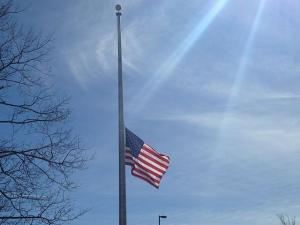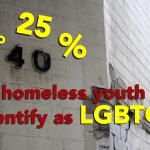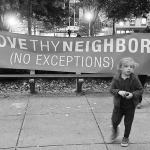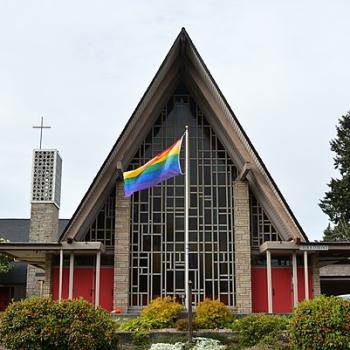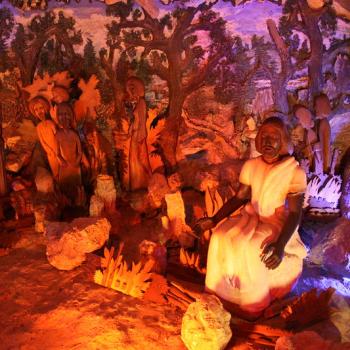Repentance Day
On the eve of “Independence Day” for a nation born in blood and bondage, many churches probably interpreted the lectionary Gospel, in which Jesus sends his disciples into towns and homes, as a mandate for evangelism and folded it into a celebration of the United States. Yet the message Jesus sent his disciples to preach and the method of preaching he instructed is completely antithetical to the brutal pseudo-Christian supremacy that swept through the Western world like wildfire.
Furthermore, the gospel proclaims the coming of the kingdom of God, which means the decline of violent empire. The ascendency of Love necessarily means that the United States cannot remain as we know it.
Pondering the Gospel on the eve of our nation’s founding led me to observe the Fourth of July not as Independence Day, but as “Repentance Day.” I am still contemplating several questions. How do we decolonize? How do we atone for the atrocities committed under the label of Christianity? How do we hope for the best of our nation even as we lament its violent origins and proclaim that the Kingdom of Love is at hand?
Lambs or Wolves?
“Behold, I am sending you out as lambs in the midst of wolves.” Luke 10:3
Jesus sent his disciples out as lambs, but Christian imperialism tore through the world like a ravenous wolf.
Jesus did not send his disciples to conquer other lands and peoples. He sent them to towns in Israel with a familiar message. He taught a merciful interpretation of Judaism to those with a context of thousands of years of history from which to build. This is significant because Jesus did not assume the ignorance or inferiority of his audience.
He instructed his disciples not to intrude. Only enter towns and homes where you are welcome, he told them.
Carry no purse or bag. Do not extract wealth. Do not take over.
You are there to heal the sick and proclaim that God’s reign, the reign of Love, is imminent.
And if they reject you, do not respond with violence. Do not coerce, do not devolve into rivalry, and do not carry resentment away with you. Wipe the dust from your feet, declare the kingdom of God, and move on.
What a contrast to the whitewashed, weaponized Christianity that invaded the shores of the Western world, spreading death instead of life, annihilation instead of abundance!
Though an ostensibly secular nation, the United States is saturated with triumphalist Christian supremacy. The 15th Century Doctrine of Discovery, invoked by Columbus among others, authorized the conquest and enslavement of “pagans” and “enemies of Christ” and the appropriation of their land, demonizing darker-skinned people throughout the world. The United States was shaped by this genocidal Christian supremacy which expelled Natives, enslaved Africans, and laid a foundation of lasting inequity.
Not Conversion But Compassion
Christians today have failed to atone for the ongoing damage of Christian supremacy. We have failed to acknowledge indigenous peoples as hosts of land stolen from them under the Doctrine of Discovery. We have failed to heal the wealth disparity and unconscious biases that especially burden Black and Indigenous people due to systemic injustices that the Church, among other institutions, perpetuated.
The Church may play a role in healing the injustices for which it is largely responsible if it honestly repents of the violent ways in which Christianity was spread through the world. But the Church cannot fully repent of its violent methods if it preaches a violent message.
There is no compassionate way to say that someone is condemned.
Fortunately, Jesus’ message has nothing to do with divine condemnation.
Jesus preached an uncompromising message of compassion, service, and nonviolence. In the context of Roman-occupied Israel, Jesus taught that liberation and fulfillment were to be found by subverting violence, not participating in it. He taught that violence can never be a path to peace but sows the seeds of self-destruction.
Jesus anticipated that his message would be rejected because many people were waiting for a warrior Messiah to militantly overthrow the Roman Empire. And he warned of terrible consequences for rejecting his path of making peace not by fighting enemies but by caring for the vulnerable and bearing one-another’s burdens. But the judgment he speaks of is not divine wrath, but the natural consequences of human violence.
Jesus was not out to establish a new religion but to build a culture of mercy and service that would endure while the violence of the world burns itself out.
Only when the Church recognizes its mission not as conversion but as compassion can it begin to heal the wounds it has inflicted.
Reaping What We Sow
Unfortunately, those wounds run deep.
The lectionary pairs Jesus’ mission for the disciples with Paul’s letter to the Galatians declaring that we shall reap what we sow.
And triumphalist Christian supremacy has sown seeds of dehumanization and destruction throughout the world.
In the wake of Independence Day we must recognize that the United States as we know it would not exist had not the seeds of a weaponized, antiChrist Christianity been sown on this soil. If the first Christians to arrive on Western shores had followed Jesus rather than a weaponized Christianity co-opted by Empire, they would not have stolen this land that became our country.
This is not a Christian nation, but it is a nation that has largely been born of and shaped by a Christian supremacy completely antithetical to the life of Jesus.
Violent theology has sown violent seeds that continue to bear violent fruit.
Seeds of a belief in a wrathful God who blesses some and condemns others have borne the fruit of an us-verses-them mentality. The militant Church is still a significant contributor to our militant culture that sows war and reaps violence, sows greed and reaps poverty, sows dehumanization and reaps systemic injustice.
But if we sow seeds of honesty, we may bear fruit worthy of repentance.
Decolonizing The Gospel
Where do we go from here?
How do Christians in the United States repent of the weaponized Christian supremacy that forged this nation at the expense of its indigenous population and exploitation of enslaved Africans?
And is it possible to heed the call of Jesus to proclaim the kingdom of God in a nation traumatized by weaponized Christianity while still respecting the spiritual autonomy of everyone in a multi-faith nation?
Is it possible to decolonize the Gospel, to make the Good News good again?
These are difficult questions. I start by recognizing these truths:
-
Jesus came not to preach abstract beliefs but to show us how to live into our interconnection with love and mercy. When we harm others, we harm ourselves; when we help others, we uplift ourselves.
-
Sharing a message of love, especially with people of another language, culture, or faith, means listening more than speaking and learning more than teaching. Love requires humility. Love requires recognizing where love already exists. Love affirms the dignity and unique wonder of every person. Love is not seeking to change others, but opening the space to let people grow together. This means honoring the diverse faiths and cultures of this nation as reflections of the infinite beautiful faces of Love, appreciating them for what they are rather than trying to conform them into anything else.
-
We recognize the warnings of Jesus not as an urgency for conversion from one religion to another, but as an urgency for living in compassion and service, not violence. Those most in need of Jesus’ warnings are those who wage violence in his name.
-
We heed Jesus’ call to compassionate living by acknowledging and turning from our violence. We learn our un-whitewashed history and teach it to our children to take responsibility, validate the dignity of those who live on the underside of injustice, and begin a process of transformation. We recognize the First Nations as hosts and stewards of the land, acknowledging the specific tribes of our particular localities. (I, for example, am writing in humble gratitude from the land of the Illini.) We advocate reparations to heal the inequities of generations of exploitation. And we redirect our budget from wars and weapons to the resources and programs that make for abundant living, for, in the words of Martin Luther King Jr., “A nation that continues year after year to spend more money on military defense than on programs of social uplift is approaching spiritual death.”
From Empire to Beloved Community
When Jesus proclaimed that the kingdom of God is at hand, he was subtly declaring the end of the Roman Empire and all empires of violence.
Empires of violence cannot last in a world of Love, not because Love violently overthrows oppressors, but because violence burns itself out. The Roman Empire eventually overextended itself and the political infrastructure of violence burnt itself out. The United States right now is on the same trajectory.
Ultimately, we cannot proclaim the coming of the kingdom of God one day and celebrate a nation that continues the violence in which it was born the next.
But we can plant seeds of repentance. We can live into the compassion of Jesus precisely by affirming the dignity of all people in their diverse colors, genders, sexual orientations and faiths. We can transform this nation from within by living into the image of Love in which we were made.
We can be instruments of Love’s peace by transforming the United States from an Empire of violence into a neighborhood of the Beloved Community. May we observe our nation’s birthday by preparing for a new birth in love.
Image: “US flag at half staff” on Wikimedia Commons, available via Creative Commons liscense.

